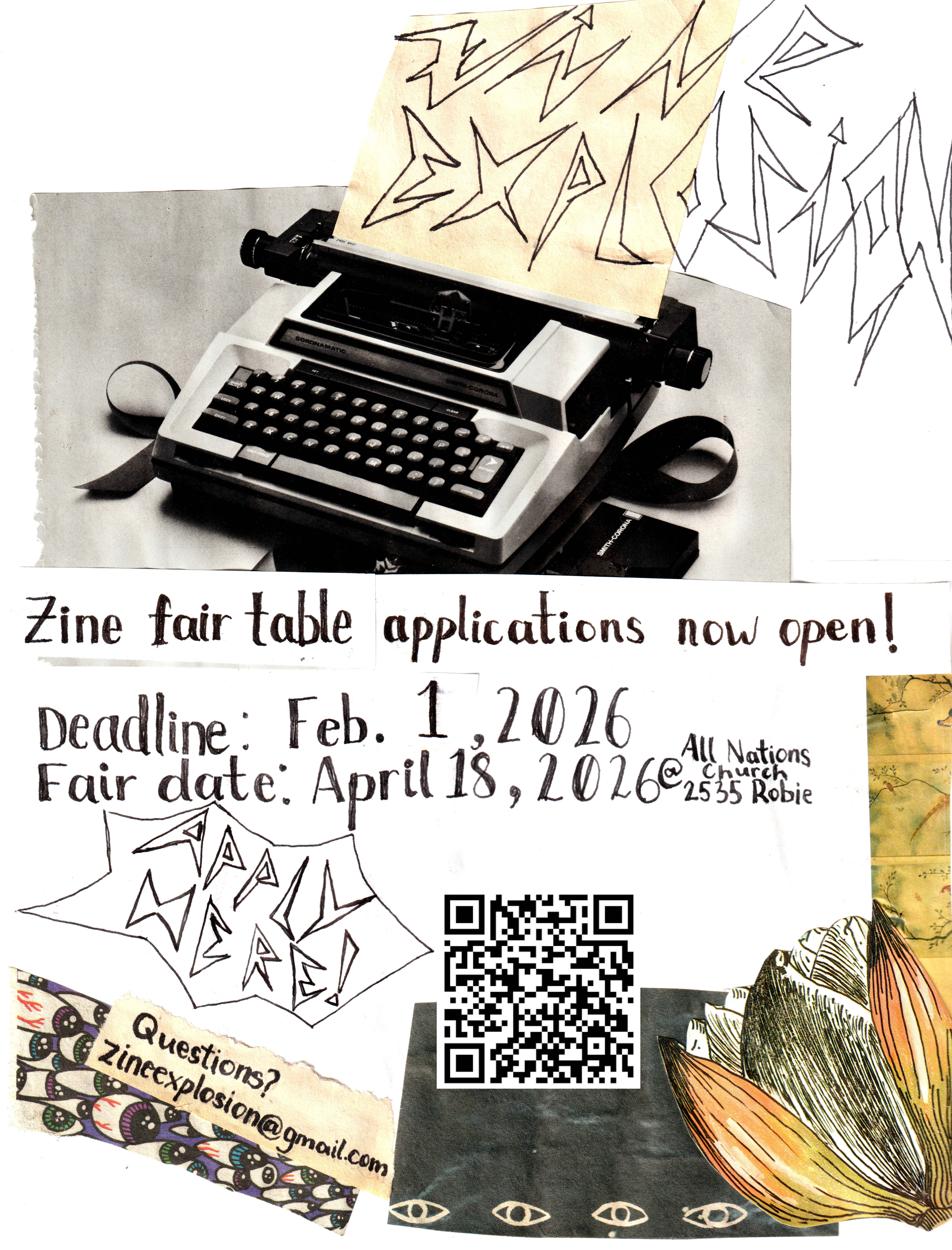Zine Cataloguing Parties
The Anchor Archive is hosting Zine Cataloguing Parties on the first Monday of every month in 2025 from 7:00 to 9:00 pm, starting January 6th.
The World Through Our Eyes: Rescued Reflections
doodles, and notes hidden in the margins of papers
A Little Zine about Appreciating Friendship
a little zine about appreciating friendship
A Little Zine about Feeling Anxious
a little zine about feeling anxious
Not For The World Would I Compare It To Anything
a series of stories about various topics.
Dumpster Dive: a zine guide to doing it and doing it well
a how to guide on dumpster diving safely.
The Electronica Show: Love in a Time of Machines
A collection of poems about various topics, all including the running theme of the machine age.
A Warning to Students of All Ages
A warning for all students about the limits of the school environment, the oppression it enforces and ways to learn outside of school.
3 into 1 the Triple Oppression Of Racism, Sexism, And Class
The background of this paper is a long discussion between leftist women and men, conducted mainly through the letters of prisoners.
Trans Cum Vol. 2

A compilation of short pieces by trans folks about their cum and how it has changed or not during transition.
Booger Break
A narrative story about watching an interdimensional cable-esque channel that focuses on snot, David Bowie's hair in the Labyrinth, adverts and more.
Some Excerpts from Librarying, Sport, and Travel [Revised Ed]
Original text from "Ranching, Sport and Travel" (1911) by Thomas Carson, made to be about libraries and librarians in a hilarious way.
i hold space for you vol.1
a series of poems about inclusivity, accessibility, anti oppression, and community.

